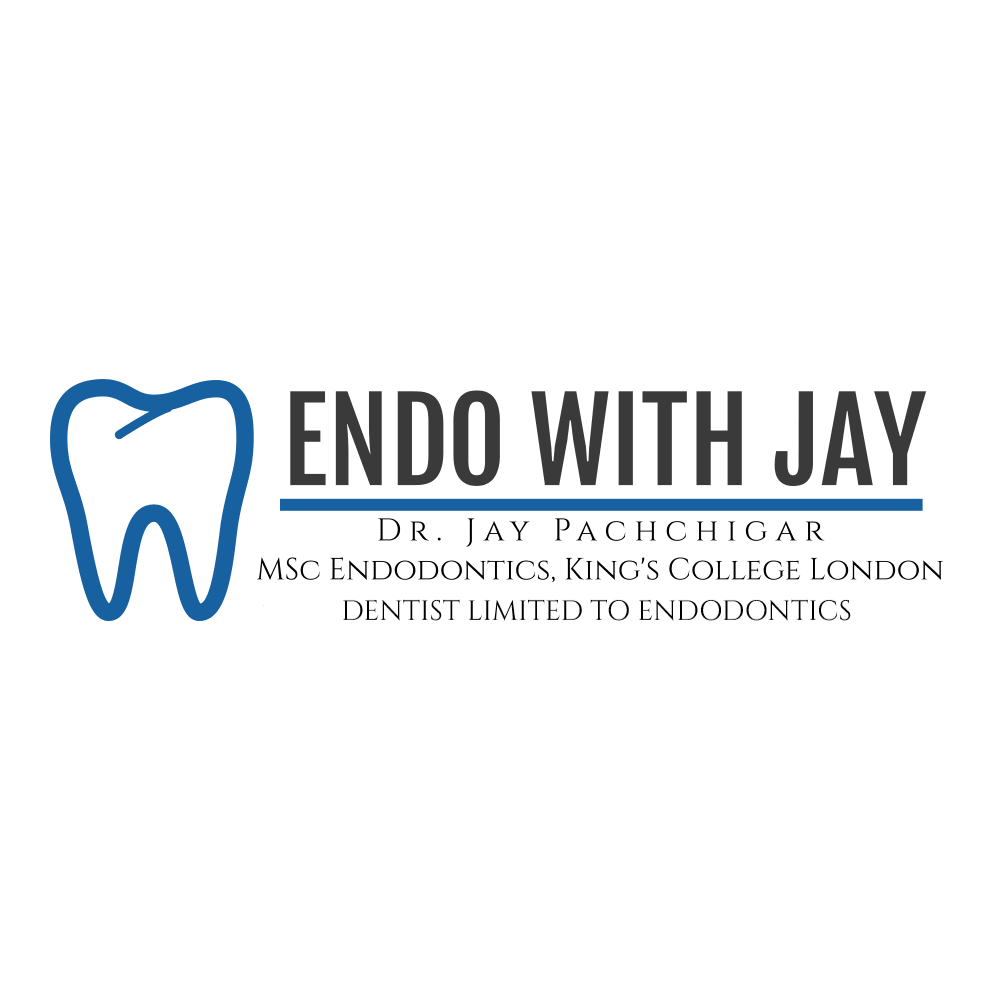What is root canal treatment?
When a tooth becomes infected due to dental decay or injury, root canal treatment is required to remove bacteria from the infected tooth, prevent reinfection and save the natural tooth. Root canal treatment is the process of removing the infected nerve tissue, thoroughly disinfecting the root canal space and filling root canal with a bioactive material. The tooth is then restored with a white filling material.
Please see the 'Treatments' page for a detailed illustration of this process.
How do I know if I need a root canal?
The most commons signs of an infected tooth are: severe pain when eating on the tooth, sensitivity to hot or cold which persists after the stimulus is removed, a gum boil/abscess (which may or may not burst) and pain which can disturb your sleep. Another common symptom is radiating pain which can cause headaches or ear ache. In these cases, you may not be able to tell which specific tooth is causing the pain.
Is root canal treatment painful?
No. We use local anaesthetic to ensure you are numb during your appointment. Some discomfort is expected in the days following your root canal treatment, although many patients report little to no pain after their treatment.
Pain immediately after root canal treatment varies from patient to patient, however on average 2 - 3 days of discomfort is expected. Anti-inflammatory pain killers, such as ibuprofen, are well suited in these cases. If you are not able to take these then paracetamol is advised.
How long are the appointments?
Most cases we see will take 2 separate visits of at least 1 hour each. In complex or heavily infected cases, 3 visits may be required. If you would prefer to have your treatment done in a single visit (due to time constraints or travel) please inform us and we will discuss if this is possible before booking your appointment. How long will my root canal last? The success rate of root canal treament is influenced by a number of factors and this will be discussed before we begin your treatment. In cases where the whole length of the tooth can be thoroughly cleaned and filled and the tooth is crowned soon after treatment, then the success rate can reach 95%. This can drop if there are complications such as blockages, long standing infections or heavily broken down teeth.
The antibiotics have stopped my pain, do I still need root canal treatment?
Yes! Antibiotics have only temporarily eased your pain. In the majority of cases, the bacteria causing the disease are within the tooth. Antibiotics cannot reach these bacteria and so root canal treatment is required. If you do not treat the tooth, the infection will return at some stage, often leading to reduced success of root canal treatment and further swellings. Can I go to work after? Yes. You should not feel drowzy after local anaesthetic. Some discomfort after your treatment is expected however this should be able to be managed with over the counter pain killers. Can I eat after my treatment? The anaesthetic may take 2-4 hours to wear off so no eating is advised until this has occurred or you may accidently bite your lip without knowing. You should aim to not chew on the treated tooth for at least 24 hours and no hard foods until we have placed a permanent filling. Do I need a crown after my root canal treatment? In molar or premolar teeth, or heavily broken anterior teeth, a crown is advised after root canal treatment. Teeth can become weaker and more brittle after root canal treatment and so a crown is required to protect the tooth and prevent it from fracturing.
Most cases we see will take 2 separate visits of at least 1 hour each. In complex or heavily infected cases, 3 visits may be required. If you would prefer to have your treatment done in a single visit (due to time constraints or travel) please inform us and we will discuss if this is possible before booking your appointment. How long will my root canal last? The success rate of root canal treament is influenced by a number of factors and this will be discussed before we begin your treatment. In cases where the whole length of the tooth can be thoroughly cleaned and filled and the tooth is crowned soon after treatment, then the success rate can reach 95%. This can drop if there are complications such as blockages, long standing infections or heavily broken down teeth.
The antibiotics have stopped my pain, do I still need root canal treatment?
Yes! Antibiotics have only temporarily eased your pain. In the majority of cases, the bacteria causing the disease are within the tooth. Antibiotics cannot reach these bacteria and so root canal treatment is required. If you do not treat the tooth, the infection will return at some stage, often leading to reduced success of root canal treatment and further swellings. Can I go to work after? Yes. You should not feel drowzy after local anaesthetic. Some discomfort after your treatment is expected however this should be able to be managed with over the counter pain killers. Can I eat after my treatment? The anaesthetic may take 2-4 hours to wear off so no eating is advised until this has occurred or you may accidently bite your lip without knowing. You should aim to not chew on the treated tooth for at least 24 hours and no hard foods until we have placed a permanent filling. Do I need a crown after my root canal treatment? In molar or premolar teeth, or heavily broken anterior teeth, a crown is advised after root canal treatment. Teeth can become weaker and more brittle after root canal treatment and so a crown is required to protect the tooth and prevent it from fracturing.
